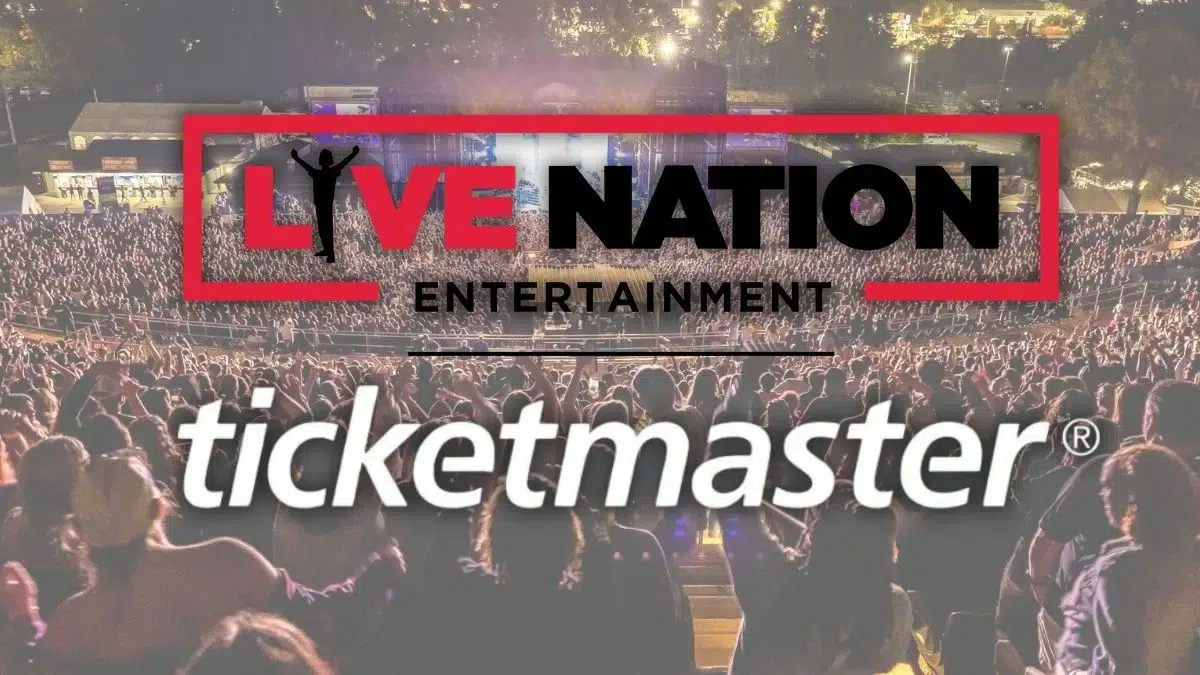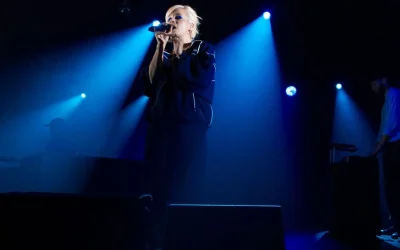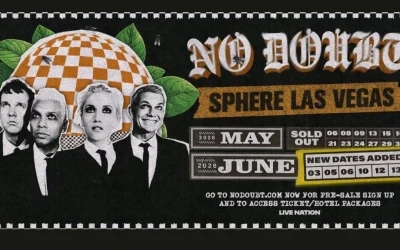Ticketmaster quietly overhauled its Terms of Use this month, publishing an updated version on August 12 that keeps most consumer disputes in private arbitration. The update comes less than a year after the Ninth Circuit Court of Appeals ruled that its prior terms—anchored in a system administered by New Era ADR—were unconscionable and unenforceable. That decision, related to the consumer class action Heckman v. Live Nation lawsuit, is now the subject of a Live Nation petition to the U.S. Supreme Court.
| READ MORE: Live Nation asks Supreme Court to end mass arbitration class action |
The new provisions were first detailed by Luke Goldstein of The Lever, who noted that while the company has shifted providers and tweaked procedures, the overall effect still blocks consumers from banding together in class action lawsuits.
| The Lever: TIcketmaster just locked you in a new legal prison |
“They are certainly treading very close to the line beyond which they’d be in violation of the law,” said Lee Hepner, legal counsel at the American Economic Liberties Project.
In its petition to the Supreme Court Live Nation argued that the Heckman and Ninth Circuit decisions have improperly singled out its arbitration agreement, allegedly in conflict with federal law and Supreme Court precedent.
It seems, based on the quick view of the recent changes made to the legal agreement any Ticketmaster user has to agree to to access the possibility of purchasing tickets to any event served by the entertainment giant, that it plans to use effectively the same systems under slightly modified settings.
What the Ninth Circuit said about Ticketmaster’s arbitration rules
In its October 2024 ruling in Heckman v. Live Nation, the Ninth Circuit described Ticketmaster’s arbitration setup as a “two-tiered system” designed to tilt disputes in the company’s favor.
At the heart of the case was Ticketmaster’s partnership with New Era ADR, a little-known arbitration firm that Judge William Fletcher found to have a “remarkable degree of coordination” with the company – The Lever’s report refers to it as a “shell company” of Ticketmaster – which was New Era’s only client when the terms were drafted, with both entities sharing the same defense law firm.
Fletcher noted that New Era’s practice of “batching” cases — using a single arbitration decision across dozens of related disputes — effectively gave Ticketmaster “some of the advantages of class-wide litigation while suffering few of its disadvantages.”
In declaring the contract terms “unconscionable,” Fletcher pointed to the overwhelming imbalance of power between Ticketmaster and its customers:
“[I]t is hard to imagine a relationship with a greater power imbalance than that between defendants and its consumers, given defendants’ market dominance in the ticket services industries.”
The court held that because consumers had no meaningful choice in accepting the terms, the arbitration clause could not stand.
What changed in the new Terms
Ticketmaster’s current Terms (August 2025) now:
- Lock disputes into JAMS-administered arbitration
“Any arbitration will be administered by JAMS in accordance with their Streamlined Arbitration Rules & Procedures and, if applicable, Mass Arbitration Procedures and Guidelines…” - Re-assert the class action waiver & retroactive scope
“Any dispute… will be resolved solely by binding arbitration… and not as a class action,” applying “irrespective of when that dispute… arose.” - Carve out only cases already filed by a hard date
The “updated arbitration agreement and class action waiver does not apply to disputes already filed and pending as of August 12, 2025.” - Preempt state arbitration rules outright
“The arbitration agreement… is governed by the Federal Arbitration Act… State arbitration laws don’t govern in any respect.” - Define ‘Mass Arbitration’ and centralize control
A “Mass Arbitration” is 75+ similar demands; JAMS may appoint a Process Administrator to manage procedures. - Set consumer fees
A consumer filing fee of $250; in mass filings, consumers’ aggregate contribution is capped at $2,500, with Ticketmaster paying other fees (absent frivolous claims).
Other notable mechanics remain: confidential proceedings, bifurcation of injunctive claims (liability decided first), broad delegation of gateway issues to the arbitrator, and a Los Angeles County forum if arbitration is held unenforceable (plus a small-claims option).
How that compares to the old terms the Ninth Circuit rejected
The Ninth Circuit’s October 28, 2024 decision in Heckman v. Live Nation affirmed a district court’s refusal to compel arbitration, finding the earlier New Era ADR clause “procedurally and substantively unconscionable.” Judge William Fletcher noted the company’s market dominance left consumers no real choice but to accept the terms, which routed cases into a system coordinated closely with Ticketmaster’s own defense counsel and used “batching” tactics that effectively rigged outcomes.
Under those prior terms, arbitration was run by New Era ADR, with a fallback to FairClaims, and included unusual procedures designed to minimize consumer leverage. None of those structural concerns appear directly fixed by Ticketmaster’s August 2025 update.
Do the new terms fix the problems the court identified?
Only partially—and likely not enough to avoid fresh challenges.
- Switching providers (New Era → JAMS).
The Ninth Circuit’s ruling singled out New Era’s ties and “novel” procedures. By moving to JAMS, Ticketmaster aligns with a larger, more established provider. But the underlying issues—mandatory arbitration and class action waiver—remain intact. - Mass arbitration logistics.
The JAMS framework (75+ case threshold, Process Administrator, capped fees) may streamline administration for Ticketmaster while limiting consumer bargaining power. Advocates argue this could dissuade coordinated filings and delay relief. - FAA preemption language.
The new terms explicitly bar state arbitration laws from applying, an aggressive move that may or may not withstand court scrutiny. California contract law principles—not state arbitration statutes—were the basis for the Ninth Circuit’s ruling, so this language may not insulate Ticketmaster from future unconscionability findings. - Delegation & confidentiality.
Ticketmaster retains a broad delegation clause (arbitrators decide validity of the contract itself) and confidentiality requirements. Critics say these provisions stack the deck in the company’s favor and limit transparency. - Scope & class waiver unchanged.
The contract still blocks class actions and applies retroactively, with the only carve-out being disputes filed before August 12, 2025. That’s a date fence, not a policy shift.
Bottom line for consumers
- Arbitration remains mandatory: Nearly any dispute with Ticketmaster/Live Nation goes to JAMS, not court.
- Class actions remain barred, except those already filed before August 12, 2025.
- Mass arbitration is still possible, but under JAMS’ rules with caps and centralized oversight.
- Key clauses that concerned the Ninth Circuit—lack of bargaining power, broad delegation, secrecy—are unchanged.
Where the Supreme Court fits in
Live Nation’s May 2025 petition asks the Supreme Court to hold that the FAA protects mass arbitration clauses and that California’s unconscionability doctrine is too hostile to arbitration. If the Court grants review and reverses, Ticketmaster’s terms—even in their new JAMS version—could gain firmer legal ground. If the Court declines, the Ninth Circuit’s ruling could stand as precedent, raising risks for Ticketmaster if consumers challenge the updated agreement.
The Bigger Picture: Antitrust, Politics, and Strategy
The arbitration clause fight is only one front in Live Nation’s panopoly of legal troubles and maneuverings. The company is also facing a sweeping antitrust lawsuit brought by the U.S. Department of Justice and joined by 39 states and D.C., set for trial in March 2026.
At the same time, Live Nation has pursued an aggressive lobbying and public relations campaign to cultivate allies in Washington. With the Supreme Court expected to tilt more firmly in favor of business interests under a Trump administration, observers suggest the company’s legal strategy—whether in Heckman v. Live Nation or the DOJ suit—relies heavily on the expectation that conservative justices will shield arbitration agreements and limit antitrust enforcement.
| READ MORE: Live Nation’s Trump Playbook: COzying up to Undermine Antitrust Case |
In that sense, Ticketmaster’s August 2025 update to its Terms of Use may not simply be a short-term workaround to the Ninth Circuit’s ruling, but part of a long game: keep consumer disputes bottled up, delay accountability, and bet that a friendlier Supreme Court majority will eventually bless the tactics as lawful.



